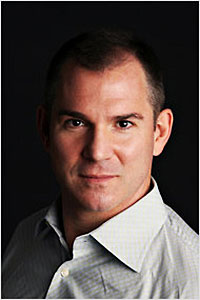These locations are never random. These targets aren't accidental. They're the very vocabulary in which assailants like the Orlando gunman speak, and he chose a place where there's drinking. And dancing. And where LGBT people congregate, feeling a sense of welcome, of belonging.
That last detail is in the foreground of the deadliest mass shooting in US history -- and rightly so.
But let's be clear: This was no more an attack just on LGBT people than the bloodshed at the offices of Charlie Hebdo in Paris was an attack solely on satirists.
Both were attacks on freedom itself. Both took aim at societies that, at their best, integrate and celebrate diverse points of view, diverse systems of belief, diverse ways to love. And to speak of either massacre more narrowly than that is to miss the greater message, the more pervasive danger and the truest stakes.

Frank Bruni is a columnist with the New York Times.
We don't yet know all that much about Omar Mateen, who pulled the trigger, again and again, in a nightclub whose name connotes life, not death: Pulse. We'll be learning more in the hours and days to come, including just how potently homophobia in particular factored into his actions, how much ideological influence the Islamic State (IS) or other extremists had, how extensive his planning was, how far back he began plotting this, and how much he knew about Pulse itself and the specific composition of its crowd on different nights of the week.
But we can assume that he was lashing out at a US at odds with his darker, smaller, more oppressive mindset. The people inside Pulse were citizens of it. More to the point, they were emblems of it. In Pulse they found a refuge. In Pulse they found joy. To him they deserved neither. And he communicated that with an assault rifle and bullets.
The IS and its ilk are brutal to gay people, whom they treat in unthinkable ways. They throw gay people from rooftops. The footage is posted online. It's bloodcurdling, but it's not unique. In countries throughout the world, to be gay is to be in mortal danger.
That's crucial context for what happened in Orlando, which is an understandable prompt for questions about our own degrees of inclusion and fairness and whether we do all that we should to keep LGBT people safe. We don't.
As Florida Governor Rick Scott spoke publicly of his heartache on Sunday, I saw complaints on social media about his own lack of support for issues important to LGBT people. Those complaints have merit.
But this isn't a moment for identity politics, which could muddle the significance of the carnage. Yes, that carnage exposed the special vulnerability of LGBT Americans to violent extremists, recommending special levels of security. And there was a frightening coda to it on the opposite coast, in the Los Angeles area, where a man with an arsenal of weapons was arrested en route to gay pride festivities.
But the threat isn't only to LGBT Americans, as past acts of terror have shown and as everyone today must recognise. All Americans are under attack, and not exclusively because of whom we drink, dance or sleep with, but because of our bedrock belief that we should not be subservient to any one ideology or any one religion. That offends and inflames the zealots of the world.
Often our politicians can't find their voices. Sometimes their words are poignantly right.
US President Barack Obama, speaking about the victims on Sunday afternoon, said: "The place where they were attacked is more than a nightclub. It is a place of solidarity and empowerment where people have come together to raise awareness, to speak their minds and to advocate for their civil rights. So this is a sobering reminder that attacks on any American, regardless of race, ethnicity, religion or sexual orientation, is an attack on all of us and on the fundamental values of equality and dignity that define us as a country."
And this was Eric Garcetti, the Los Angeles mayor, at a news conference: "Today we know that we are targeted as Americans, because this is a society where we love broadly and openly, because we have Jews and Christians and Muslims and atheists and Buddhists marching together, because we are white, black, brown, Asian, Native American. The whole spectrum and every hue and every culture is here."
It was a perfect description of the country I love. And an equally perfect description of what the Orlando gunman couldn't bear. ©2016 The New York Times
